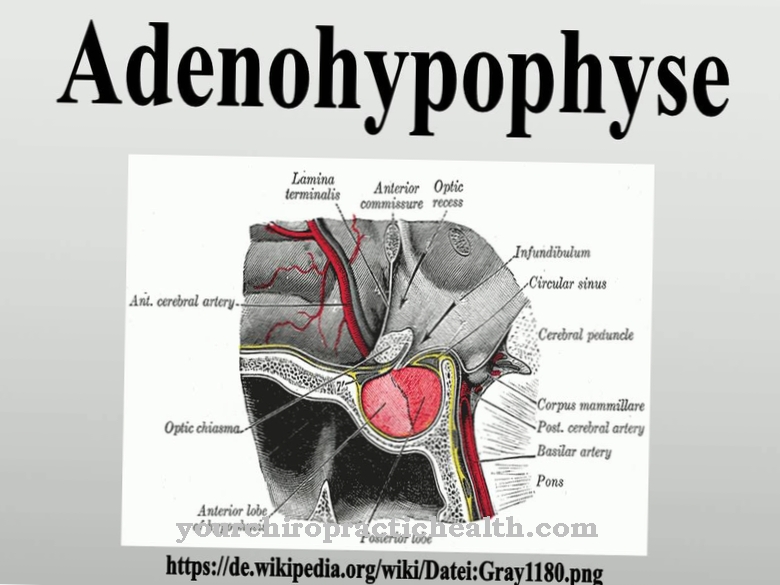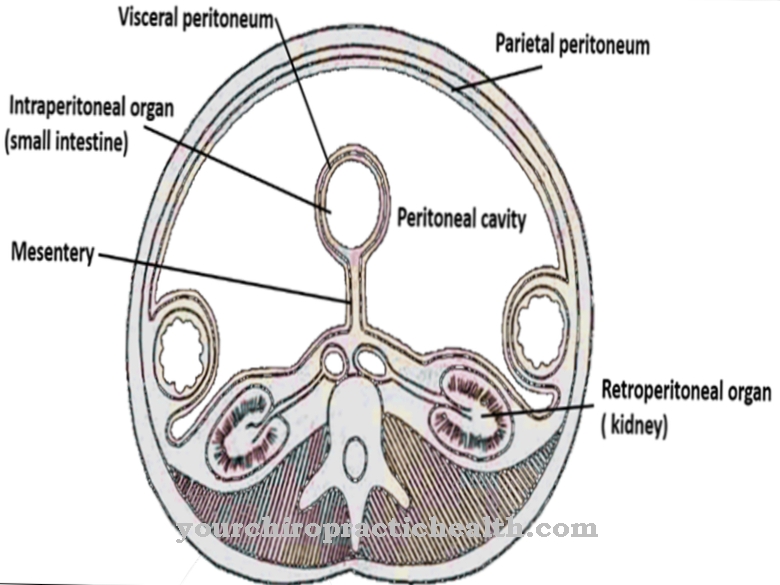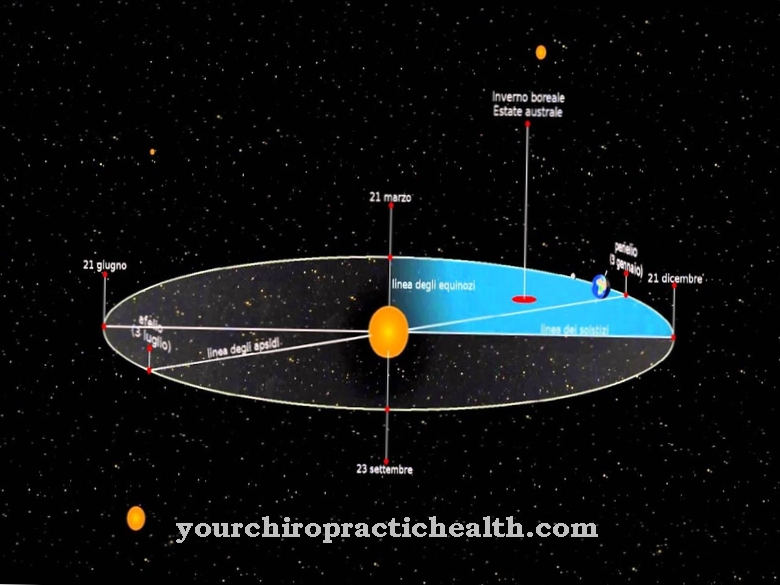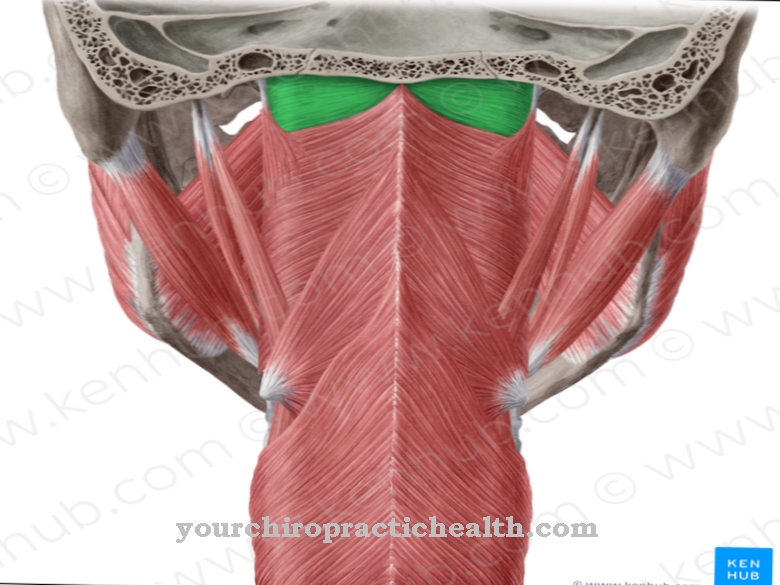Of the Petrosus minor nerve is part of the IX. Cranial nerves. It's in the back of the brain. Its job is to supply the parotid gland.
What is the minor petrosal nerve?
The minor petrosal nerve is a nerve that is located inside the skull. He is one of the branches of the IX. of a total of XII. Cranial nerves. The IX. The cranial nerve is the glossopharyngeal nerve. With its branches, it innervates all areas that are connected to the swallowing process.
The nervus petrosus minor forms the Jacobsen anastomosis together with the nervus tympanicus. The nerves supply the parotid gland and the ear trumpet. The parotid gland is called the parotid gland. The ear trumpet is the tuba auditiva. The parotid gland supplies the entire mouth and jaw area with saliva. This is important in language formation and the chewing process. The saliva is rich in enzymes and proteins. The Tuba auditiva balances the air pressure in the ear and the nasopharynx. The pressure equalization enables hearing. It is also important for the secretions that have formed in the ear to drain away. Without the minor petrosus nerve, both organs would not be able to fully perform their activities.
Anatomy & structure
The IX. The cranial nerve is the glossopharyngeal nerve. This emerges from the brain stem and moves down to the jugular foramen. The foramen is a small opening in the posterior cavity of the skull. When the glossopharyngeal nerve passes through the jugular foramen, it forms two ganlia.
These are the superior ganglion and the inferior ganglion. From the inferior ganglion, the fibers continue through the tympanic canal of the temporal bone to the tympanic cavity of the middle ear. There, sympathetic fibers from the carotid plexus are taken up and the tympanic plexus is formed from all fibers. This supplies the middle ear and the auditory tuba in a sensitive manner. The minor petrosus nerve branches off from the tympanic plexus. It moves back into the cranial cavity, where it runs under the dura mater.
The minor petrosus nerve leaves the interior of the skull through the foramen lacerum and goes to the infratemporal fossa. It finally ends at the otic ganglion. There its parasympathetic fibers are connected. These then move on to the parotid gland. This is the parotid gland. Together with the tympanic nerve, which arises from the nevus glossopharyngeus, the minor petrosus nerve forms the Jacobson anastomosis.
Function & tasks
The minor petrosal nerve has an important role in supplying the organs in the region of the ear. It innervates the auditory tuba and the parotid gland. Both organs can carry out their activities through the minor petrosal nerve. The tuba auditiva is responsible for equalizing the pressure in the ear. This is essential for hearing. Without it, the sound waves picked up by the pinna would not be sufficiently transmitted.
The parotid gland produces ¼ of all saliva in the human body. The flow of saliva is called salivation. The back of the tongue is supplied with the saliva it produces. Part of the taste sensation takes place there. The saliva produced is thin. It is involved in the decomposition of nutrients, which is important for the chewing process.
There are immunoglobulins in saliva. These are immune bodies that provide immunological defense in the mouth and the pharynx. It offers extensive protection against bacteria and keeps the oral flora in balance. The mucous membranes, teeth and gums are protected by the saliva. Thanks to its watery structure, it gets into the interdental spaces to offer extensive protection against bacteria and viruses.
The activities of the tuba auditiva and the parotid gland play an important role in language formation. Without it, there would be a nasal debate. This applies to both singing and speaking.
Diseases
Disorders associated with the minor petrosal nerve include nerve pain. These are called neuralgia and cause the patient to experience sudden pain. These occur in the minor petrosal nerve in the entire area of the ear.
Nerve inflammation within the fibers of the minor petrosal nerve can lead to a failure of the entire functional activity of the fibers. This would mean that the parotid gland and the auditory tuba are no longer adequately supplied and are restricted in their respective activities. Since the parotid gland is responsible for the flow of saliva in the mouth and jaw, there would be problems with the chewing and swallowing process. The saliva regulates the oral flora and is an important element in language formation. The pressure balance between the middle ear and the nasopharynx takes place via the auditory tuba. It is also an important element in draining ear secretions.
If there is swelling of the brain in the brain, this can cause the minor petrosus nerve to become pinched. Pinching the nerve also limits its functionality and would have an impact on the activity of the parotid gland and the auditory tuba. Brain swelling can be caused by accidents, surgery, tumors, or falls.
In the case of fractures of the skull bone, for example in the area of the jugular foramen, it can happen that the opening of the skull is closed. If this is the case, the nerve can no longer pass through the base of the skull. This also leads to malfunctions. In addition, if fractures occur, they can damage nerve fibers and cause them to fail.
























.jpg)



